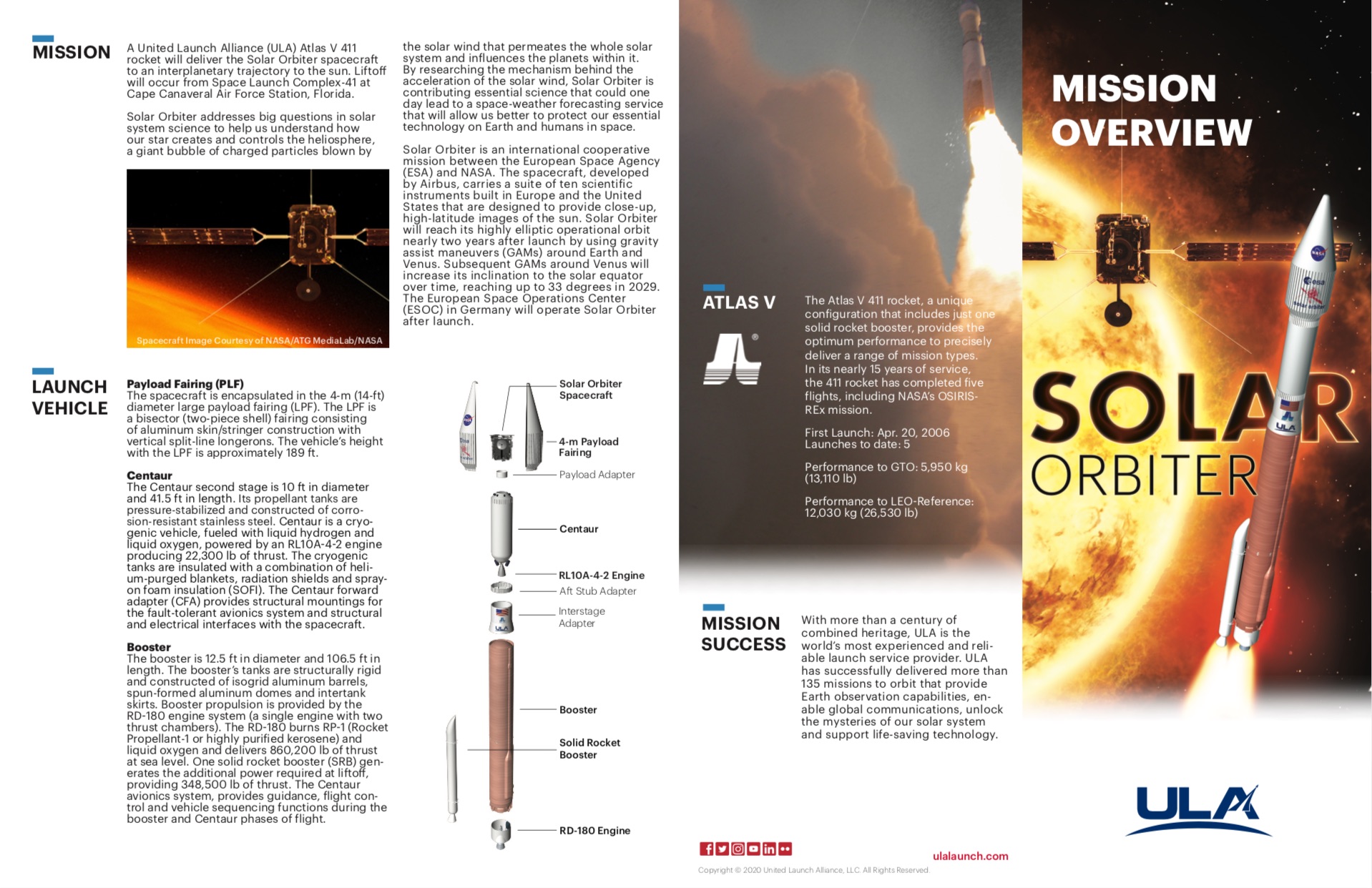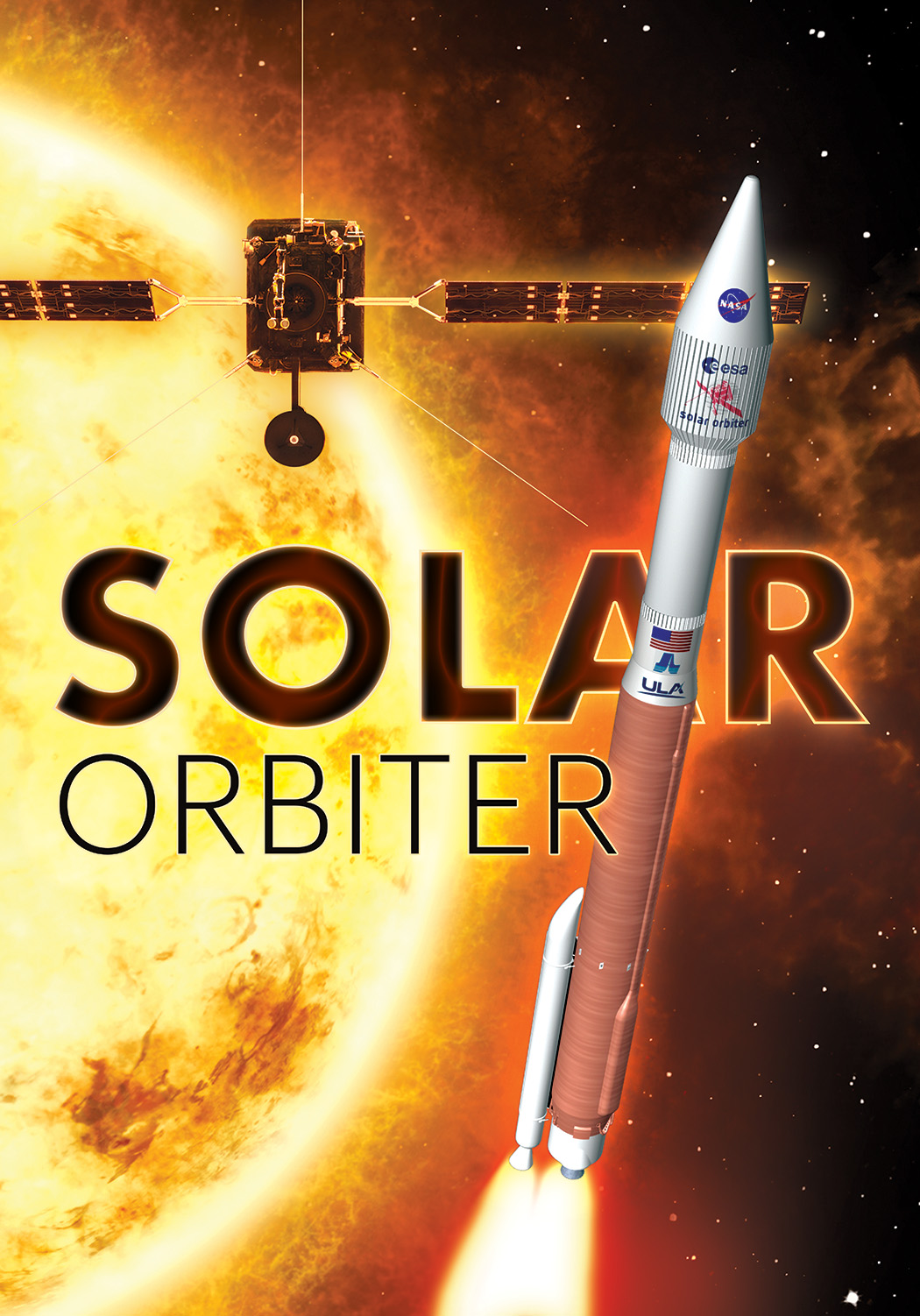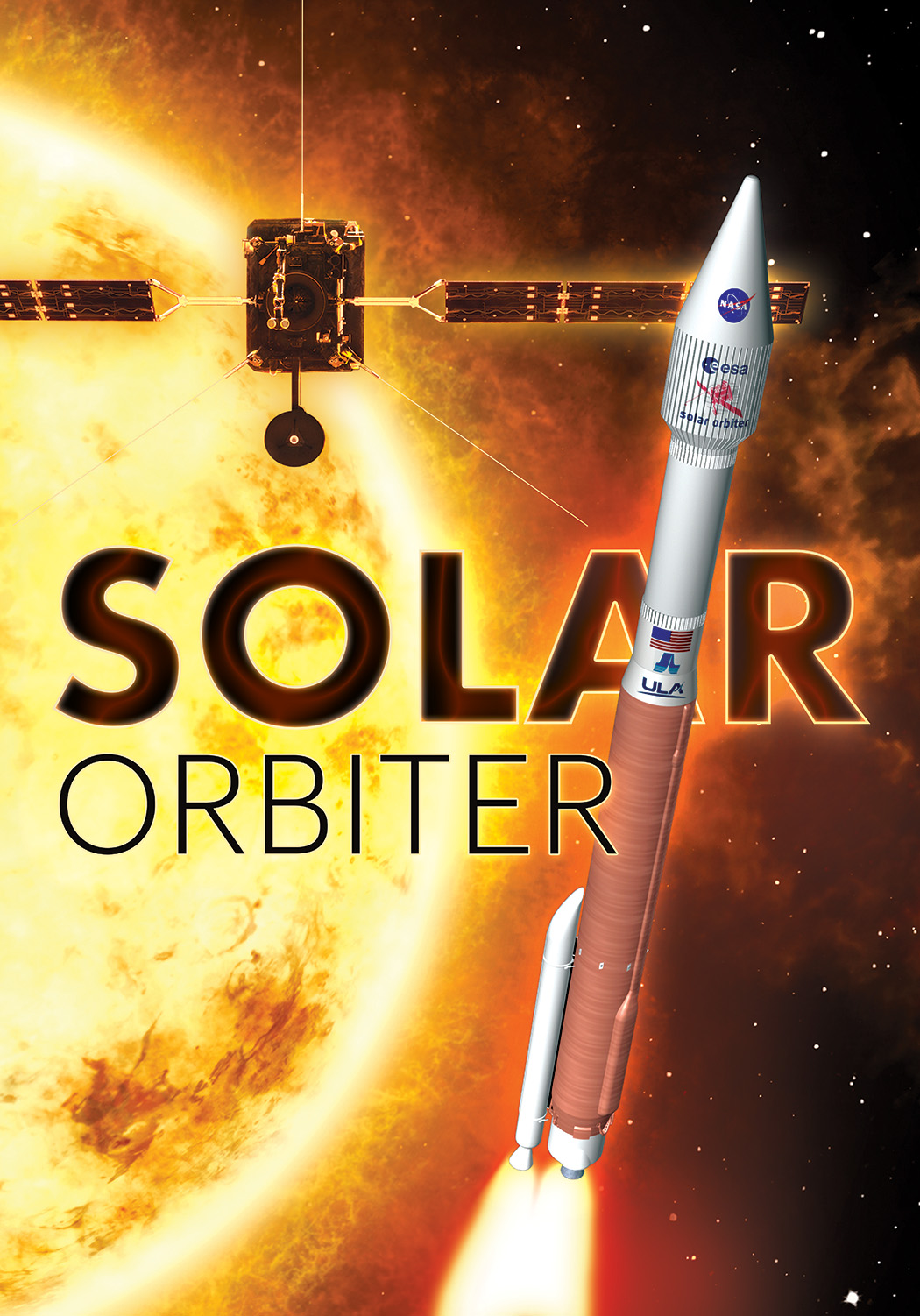Atlas V
ULA’s Atlas V rocket is a workhorse for the U.S. military, intelligence
community and scientific researchers. Developed as a modular vehicle,
each Atlas V is tailored to the needs of its passenger by adding as many
as five side-mounted solid rocket boosters for increased lift
performance and a variety of available payload fairings in various
diameters and lengths to protect satellites during atmospheric ascent.
The high-energy Centaur upper stage, which has been used to send
spacecraft to every planet in our solar system, is incorporated into
Atlas V to deliver the payloads to their intended destinations.
ULA's will fly the Atlas V rocket with a kerosene-fueled common core booster, one
solid rocket booster and the hydrogen-fueled Centaur upper stage.
United Launch Alliance Atlas V 411 configuration rocket will launch the Solar Orbiter spacecraft on its journey to study the sun for the European Space Agency (ESA) and NASA.

Space Launch Complex 41
Space Launch Complex 41, the East Coast home of the Atlas V rocket at Cape Canaveral Air Force Station in Florida, employs a “clean pad” concept of operations to ready launch vehicles and payloads for ascent into space. The rocket elements are assembled atop a Mobile Launch Platform inside the Vertical Integration Facility (VIF) located adjacent to the launch pad. The platform and fully stacked Atlas V then travels by rail approximately 1,800 feet northward from the VIF to the pad for the final countdown, fueling and liftoff.
Complex 41 was constructed by the U.S. Air Force in the 1960s for the Titan rocket program. The site was rejuvenated in support of the Atlas V starting in the late 1990s.


